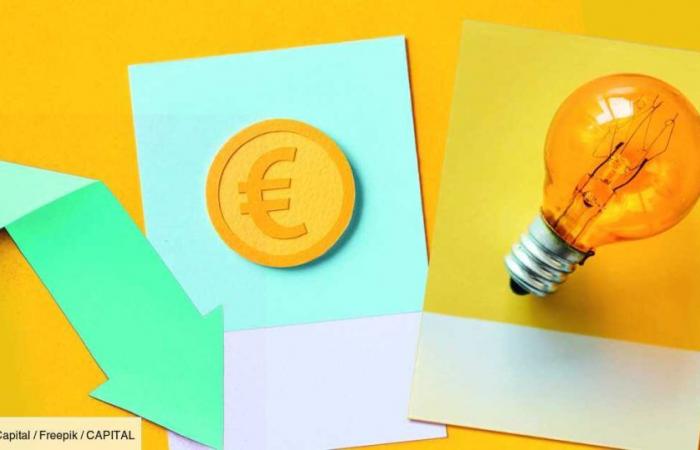© Illustration Capital / Freepik
How to increase purchasing power without directly affecting salaries? By lowering taxes. This is the choice made by the National Rally. For “give the French some oxygen”as its president Jordan Bardella wishes, the far-right party intends to divide by four the rate of the Value Added Tax (VAT) applied to energy products – fuel, gas, electricity -, reducing it from 20% to 5.5%. Initially considered from the first days of his possible taking office at Matignon, in the event of victory in the second round of the legislative elections on July 7, Jordan Bardella backpedaled. This measure will finally be applied in a «second temps» after the vote on a draft amending finance bill (PLFR) in parliamentary session, after the end of the Olympic Games.
On paper, the measure seems attractive because it allows for a reduction in the tax burden on products paid for by households. But the RN’s political opponents are quick to remind it that, during Nicolas Sarkozy’s five-year term, the reduction in VAT from 19.6% to 5.5% on catering services has benefited customers very little. “The restoration precedent did not work. Studies have shown that the gain was passed on to the restaurateurs’ margins.”confirms François Ecalle, economist and founder of the association Public Finances and Economy (Fipeco).
The rest under this advertisement
The rest under this advertisement
Gas prices: why the RN VAT reduction will not be enough to reduce your bills
The counterexample of restoration
Because yes, a report from the Institute of Public Policy (IPP), published in 2018, points out that the prices of dishes had only decreased by 1.4%, or barely 10% of the VAT gain earmarked for the benefit of customers. In reality, more than half of the savings generated by this reduction in taxation contributed to the increase in restaurant margins. “The various VAT reduction policies implemented in Europe rarely have the desired effects on prices, but rather lead to an increase in corporate profits”thus underlines the IPP. The Council of Compulsory Levies, a body dependent on the Court of Auditors, also recalled in 2023 that the reduction of the VAT rate to 5.5% for housing renovation work had resulted in a “limited economic efficiency”which only reduced “partially” the prices of the craftsmen.
The rest under this advertisement
Is such a diversion possible in the case of energy products? “For the case of fuels, noassures Xavier Timbeau, principal director of the French Office of Economic Conditions (OFCE). This reduction in VAT would be almost immediate and would allow a reduction of 20 cents per litre at the pump. It would be very similar to the fuel rebate put in place during the energy crisis.” The economist also points out that, unlike in the catering sector, comparing fuel prices is very easy for individuals, who can go to a petrol station with more attractive prices. Distributors therefore have every interest in passing on the VAT reduction as much as possible.
Water in the gas
For gas and electricity, the result of such a measure would be more nuanced. If officially the market is liberalized – it is possible to change contracts at any time and without charge -, households show “more inertia”underlines Xavier Timbeau: “We don’t look at our gas or electricity bill every month and say to ourselves that we’re going to change supplier.” A boon for these professionals, who would be “more inclined” to benefit from part of the VAT reduction, to the detriment of households.
The rest under this advertisement
The rest under this advertisement
Above all, the measure has no redistributive effect. That is to say, it applies to all households in the same way, rich and poor alike. The Terra Nova think tank recalled in May, in its document “RN’s energy hell”what “Rebates on fuel, as on other forms of energy, benefit the wealthiest more, who are less encouraged to reduce their excess consumption.” A gain in purchasing power… therefore captured mainly by the richest households.






